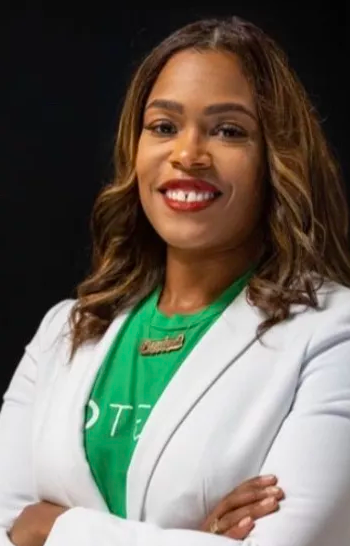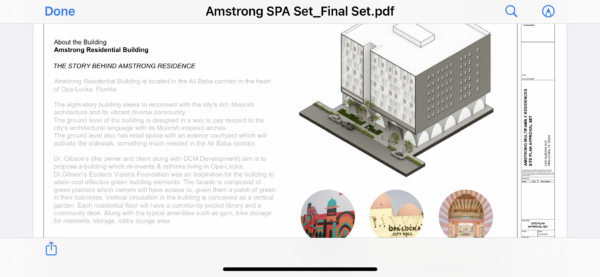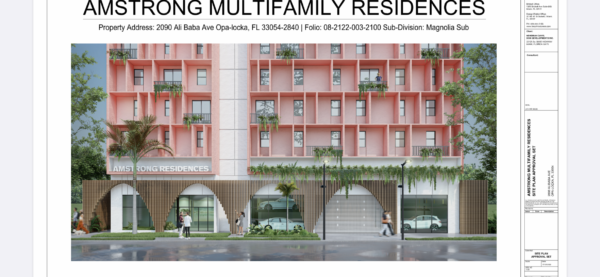A recent report from Realty Hop reveals that Miami is the most unaffordable housing market in the United States. A local organization committed to the green economy, sustainability, and home ownership has a solution to support low- to moderate-income homebuyers.

“We are doing our part so that people can stay in areas where they have generations of legacy,” Dr. Pandwe Gibson, founder of Ecotech Visions Foundation, told Finurah. “Everyone deserves affordable housing and healthy environments near where they work.”
Miami-based Ecotech Visions Foundation is building sustainable single-family dwellings and multi-family condominiums for Miami residents who fall within annual income ranges of $20,000 to $60,000. Two affordable housing projects have already been completed, and a third, $15 million project is in the pipeline. This is in tandem with Miami-Dade County Mayor Daniella Levine’s initiative to make affordable housing accessible citywide by 2025. Levine projects to make 9,000 to 16,000 units available by this time.
Such a model uses subsidies from state and county agencies to provide down payment and closing costs assistance as HUD provides funding and allocates to local agencies, allowing the properties to be sold well below market value. The National Black Realtors Association manages such programs in select cities and states.
“Our vision is to do our part to support the mayor’s initiatives,” Gibson said in a statement. “[We] work diligently on the ground improving the affordable housing availability to the residents of Miami Dade County District 1.”
Currently, the median household income in Miami-Dade County is $45,000, while the median home price is estimated to be $600,000, according to The Real Deal. To become a homeowner, a person with the median income would need 86 percent of their annual income to afford a home. In many cases, that is not an option for Black residents, who make up 17 percent of the population, and the median income sits around $38,000 — significantly lower than white, Latino, and Asian counterparts.
In June, HUD secretary Marcia Fudge called Miami “the epicenter of the housing crisis in this country.” High rent and high home costs have resulted from out-of-state migration to Miami and the rising costs of real estate.
The national median for renting a one-bedroom apartment is $1400, according to Zumper. In Miami, rentals have risen to $2600, according to Realty Hop.
What does this often mean for Black residents of Miami and their families — who are spending more than 30 percent of their income on housing — whether they are renting or owning a home? For many, Gibson says, it means looking for more affordable housing in counties that are significantly further away.
“It’s daunting to have to work in Miami and then travel home for two hours or more,” Gibson said. “There’s no space to think about recycling or donating or things for your family when you spend $2,000 per month in rent.”

EchoTech Visions’ land development initiative allows Miami residents to purchase sustainable homes built from recycled shipping containers. Using universal design, these three-bedroom, three-bath homes are built with wider doorways and outlets conveniently located throughout the home.
“It is significant to have homes built so that people can stay in their homes as they age,” Gibson said. “Green is about sustainability — how can you not have to do something over and over again.”
Proceeds from the sale of these residences are then poured back into the community through an array of educational programming introducing residents to employment opportunities in the greentech Industry.

Launched in 2015 by Gibson, EchoTech Visions uses proceeds from its land development to provide educational programming and business development opportunities with a focus on enhancing sustainability and access to the green economy.
Focused on supporting low-income residents in Miami-Dade County in Florida, Los Angeles, and Cook County, Illinois, the organization has trained more than 1000 through its Green Scouts initiative, which provides internships to residents between the ages of 16 to 25 to work with local startups, providing them with on-the-job training; 400 residents through its Digital Citizens programs which introduce residents to web design, app design, digital marketing, and digital real estate development.
During the COVID-19 pandemic, the organization donated more than 100 computers to low-income high school and college students to support online learning. More than $20 million in funding for various foundation projects.
“There are huge gaps between the haves and have-nots,” Gibson told Finurah. “There are opportunities to help people be productive members of society.”




